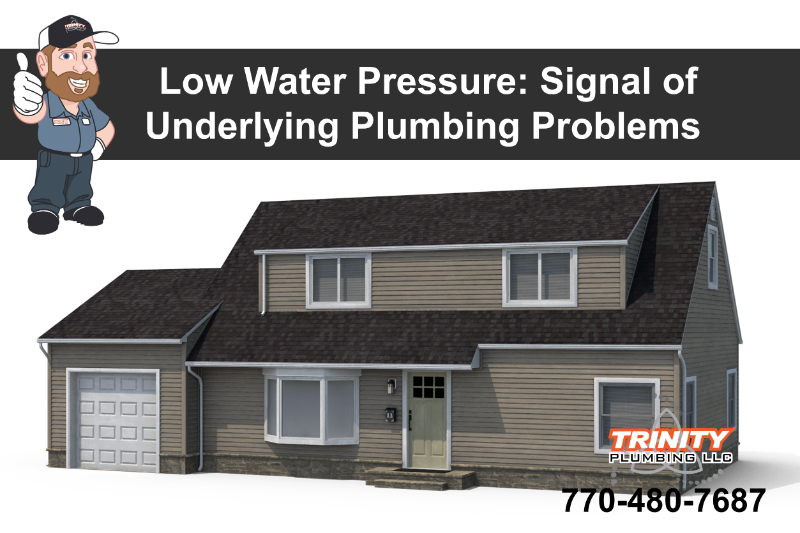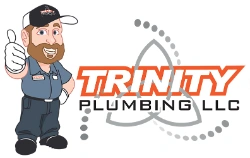Imagine turning on your shower, only to be greeted by a feeble trickle of water. Or attempting to wash dishes while the faucet’s lackluster flow leaves you frustrated. Low water pressure can turn everyday tasks into challenges and is a common plumbing issue that Georgia homeowners encounter. While it may seem like a minor inconvenience, low water pressure can signal underlying plumbing problems that warrant attention. In this guide, we’ll dive into the potential causes of low water pressure and why it’s crucial to address them.
Low water pressure can be a sign of plumbing issues in your Georgia Home.

Pipe Blockages
Clogs or obstructions in the pipes can restrict the flow of water, leading to reduced water pressure. This can occur due to mineral buildup, sediment accumulation, or debris in the pipes.
Corroded Pipes
Over time, pipes can corrode, especially in older homes with galvanized steel pipes. Corrosion can reduce the internal diameter of the pipes, restricting water flow and causing low pressure.
Leaking Pipes
Hidden leaks in the plumbing system can result in a drop in water pressure. The lost water from the leaks reduces the amount of water available at fixtures.
Municipal Water Supply Issues
Sometimes, low water pressure is not related to your home’s plumbing but rather an issue with the municipal water supply. It could be due to high demand during peak usage times, maintenance work, or water supply infrastructure problems in your area.
Pressure Reducing Valve Problems
If your home has a pressure reducing valve, a malfunctioning or improperly adjusted valve can lead to low water pressure.
Water Heater Problems
If the water heater is not functioning correctly, it can impact the hot water supply and, in turn, affect water pressure.
Plumbing System Design
In some cases, low water pressure may be due to the original design of the plumbing system, such as inadequate pipe sizing or improper installation.
Low Water Pressure in Your Georgia Home
To address low water pressure, it’s essential to identify the specific cause. If you’re experiencing consistently low water pressure in your potential new home, consider having Trinity Plumbing inspect the plumbing system to pinpoint and resolve the issue. Addressing the underlying cause can improve water pressure and prevent potential plumbing problems in the future.
Contact Trinity Plumbing To Troubleshoot and Fix Your Water Pressure Issues
Whether you’re dealing with excessively high pressure or frustratingly low flow, Trinity Plumbing is here to help. Our experienced team specializes in diagnosing and resolving water pressure issues, ensuring your home’s plumbing system operates smoothly. If you’ve noticed inconsistent water pressure, contact Trinity Plumbing.







